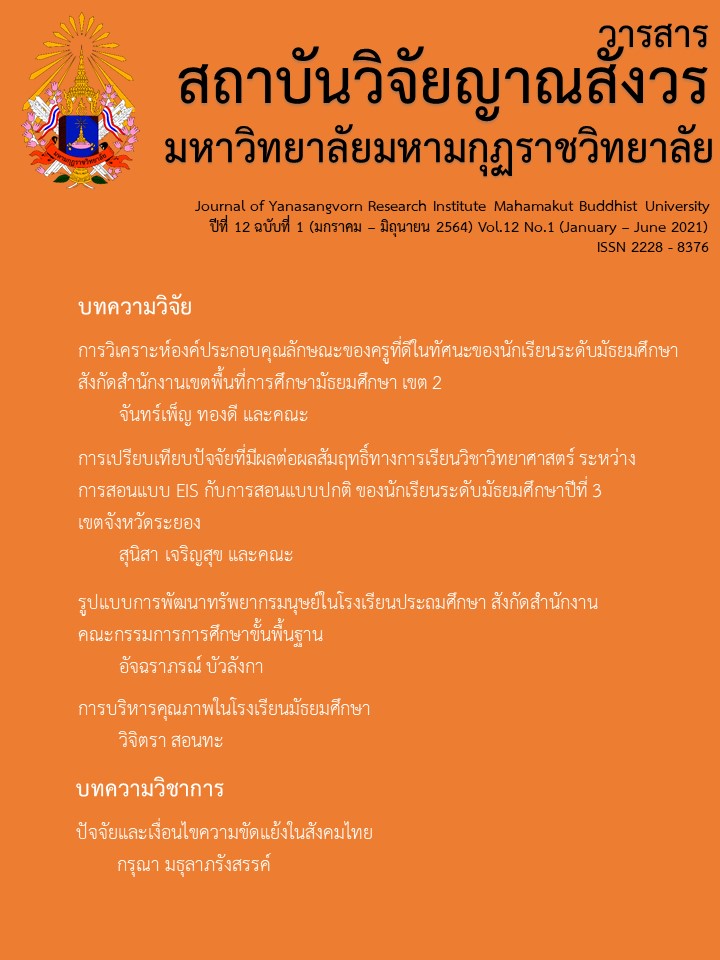THE FACTORS AND CONDITIONS OF CONFLICT IN THAI SOCIETY
Main Article Content
Abstract
Conflict or discord among individuals, groups, organizations or institutions is a tool for changing society. It also brings about stress, unrest and mistrust. There are decision factors, perceptions, and different interests and values. Failure to accept the reality that the divide of views, ideas and regional needs is a major obstacle to finding a country solution. Conflict In every society cannot be avoided. Social conflicts are common. Only conflicts can be resolved within the framework of existing mechanisms. That society can continue as long as the conflict is in proportion not to be widespread, so that they could not find a method or mechanism to end the conflict. That society can continue and it can be considered that society is still living in harmony. But when the conflict reaches a point that cannot be resolved, social choices will be limited. Trying to resolve conflicts will be through peaceful means, negotiation or mediation. When resolving conflicts is through force or violence, the result is one side winning and the other party is defeated. The winner will establish a new political rule. If that is the case where it is impossible to overcome, it may even split into two or three of a new community or political unit.
Article Details
References
ฉันทนา บรรพศิริโชติ. (2542). ความขัดแย้งในสังคมไทยยุควิกฤติเศรษฐกิจ. กรุงเทพมหานคร : คบไฟ.
ทศพร ท่องเที่ยว. (2546) การเรียนรู้สู่การทำแผนงานและสร้างเครือข่ายเพื่อเสริมสร้างความเข้มแข็งให้กับชุมชน. กรุงเทพฯ : มหาวิทยาลัยเทคโนโลยีพระจอมเกล้า.
ธนยศ ชวะนิตย์. (2559). การขัดกันแห่งผลประโยชน์Conflict of Interest: COI . สืบค้นเมื่อ 24 ตุลาคม 2561 จาก ww.ojs.mcu.ac.th/index.php/socdev/article/download/1656/1297
พระธรรมปิฎก (ป.อ.ปยุตฺโต). (2554). กระบวนการเรียนรู้ เพื่อพัฒนาคนสู่ประชาธิปไตย. กรุงเทพมหานคร : โรงพิมพ์สุวรรณภูมิ.
เมธี ครองแก้ว. (2551). ผลประโยชน์ส่วนบุคคลจากความสูญเสียส่วนรวม: การรับมือกับการทุจริตจากผลประโยชน์ทับซ้อนในประเทศไทย. วารสารวิชาการ ป.ป.ช., 1(1), 1-15.
สถาบันวิถีทรรศน์มูลนิธิวิถีทรรศน์. (2546). ธรรมาภิบาลกับคอร์รัปชั่นในสังคมไทย (พิมพ์ครั้งที่ 1). กรุงเทพมหานคร: บริษัท อมรินทร์พริ้นติ้ง แอนด์พับลิซซิ่ง จำกัด (มหาชน).


